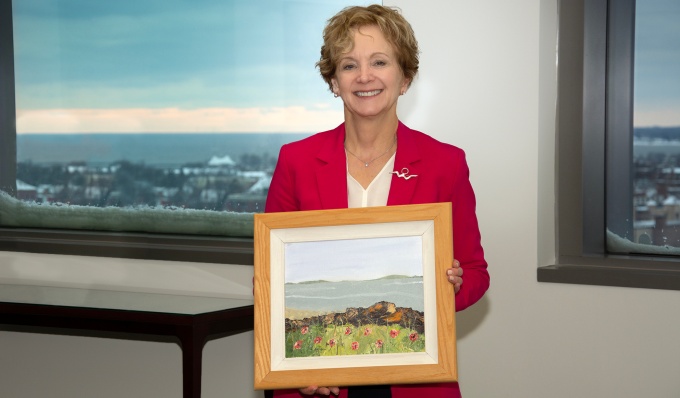Clinical Research: ATP1A3-Related Disorders

Principal investigator on the study, Allison Brashear, MD, MBA, holds artwork by a former patient who was grateful for Brashear’s research and dedication to expanding knowledge about ATP1A3-related movement disorders.
Clinical research like ours is an important and necessary part of finding new treatments and more ways to diagnose conditions and diseases.
Have you been diagnosed with rapid-onset dystonia-parkinsonism (RDP), the rare movement disorder, or other ATP1A3-related movement disorders?
Are you interested in helping researchers learn more about these conditions?
Our study is recruiting patients diagnosed with RDP and those who have ATP1A3 gene variants, including alternating hemiplegia of childhood (AHC) and CAPOS (cerebellar ataxia, areflexia, pes cavus, optic atrophy, and sensorineural hearing loss) syndrome.
Specific criteria have been established to determine who is eligible to participate in this research study:
















